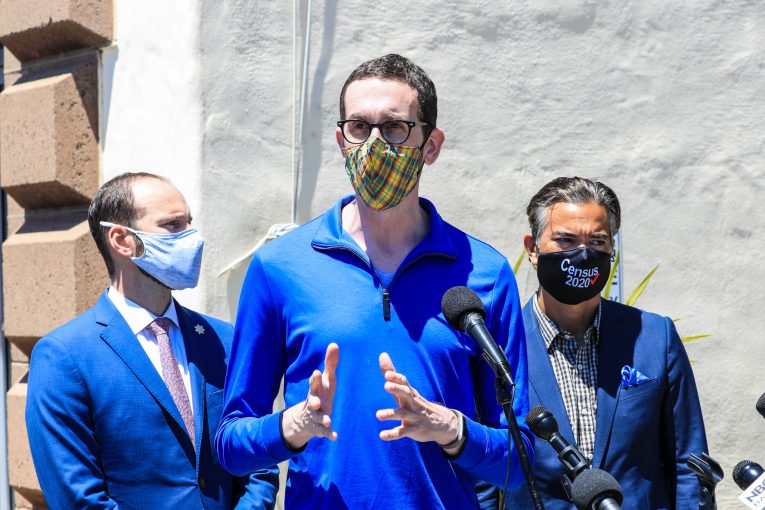

By The Vanguard Staff
SACRAMENTO, CA – A measure introduced here at the State Capitol Thursday – called the Fresh Start Act – would help people clear their criminal records by ensuring outstanding restitution and restitution fines are not a barrier to expungement.
Authored by State Senator Scott Wiener (D-San Francisco) SB 1106 would allow, said Wiener, people “who have served their time…to clear their criminal records despite owing restitution, if they otherwise meet the criteria for that relief.
He noted that SB 1106 “does not cancel a person’s restitution debt. Rather, the legislation allows a person to clear their record and move forward in life despite being too poor to pay restitution.”
In a statement released Thursday, Wiener said “Currently, people across California are frequently denied record sealing and expungement because they are poor and cannot afford to pay outstanding restitution and restitution fines.”
He explained that “Restitution debt is often the only thing holding someone back from clearing their record and finding a job and housing. This exacerbates the cycle of poverty and criminalization of Black and brown communities, who are disproportionately impacted by the criminal legal system.”
The legislation notes that two types of restitution payments are frequently imposed on anyone convicted of a crime.
“The first is a restitution fine, which is a fixed amount charged to anyone with a conviction regardless of the crime and its impact. Restitution fines can run in the thousands and even more than $10,000. The second is direct restitution, by which a court can order someone to compensate a victim for the harm caused to the victim,” SB 1106 supporters note.
“When setting these amounts, courts are not required to take into account a person’s ability to pay that restitution,” said Wiener, adding “This means that victims of crime, who are awarded restitution, overwhelmingly receive either nothing or a small percentage of the restitution because a defendant lacks the resources to actually pay it.”
“Current law allows courts to deny a request for expungement of a conviction — even if the individual is otherwise eligible for expungement — if they have any outstanding unpaid restitution. A court can deny expungement on this basis even if the defendant is living in poverty,” he said.
The lawmaker asserts, “This kind of barrier to reentry does not increase the likelihood that someone will pay off their restitution. In fact, blocking someone from clearing their record makes it even less likely that they’ll ever be in a position to pay restitution.”
Wiener cited a 2014 study by Stanford University and the San Jose State University Record Clearance Project “found that the estimated benefits of expungement outweigh costs by about $5,800, per person, in one year – nearly $6,500 in today’s dollars.”
Bill cosponsors include a multi-regional coalition that is “focused on modifying the court fee system and ending wealth extraction through the criminal legal system, which disproportionately impacts Black and Brown communities, inflicting life-long monetary subjugation on them.”
The coalition is made up of legal advocates, formerly incarcerated people, policy experts, and movement building organizations led by impacted people.
“People exiting our criminal justice system find it difficult, if not impossible, to get jobs and housing due to their record,” said Senator Wiener. “Helping people clear their criminal records – be it with expungement or record sealing – is an important strategy to help formerly incarcerated people reenter society successfully.
“Restitution payments should not keep people in an unending cycle of poverty and hold them back from restarting their lives. That is counterproductive for everyone involved, including victims. SB 1106 will help many in our communities get their lives back on track,” he added.
“As a woman who served my time and came home committed to improving my life and changing the narrative by mentoring youth inside of the justice system, this bill would give me a chance to remove many barriers that I still face financially some 10 years later,” said LaVell Baylor, Deputy Director of Freedom 4 Youth.
“This kind of barrier to reentry has not been shown to increase the likelihood that someone will pay off their restitution. In fact, it is more likely that it prevents them from doing so,” said Delaney Green, Clinical Teaching Fellow at the Berkeley Law Policy Advocacy Clinic.

What, wait? I thought reparations were a key part of restorative justice. If you don’t repair what you did wrong, aren’t you just ‘getting away with it’ in both criminal and restorative senses? I can see setting a payment plan with probationary expungement and penalties if you don’t pay. But isn’t this Weiner approach the same approach as saying deadbeat dads are forgiven on paying their alimony/child-care because they are too poor?
It seems you are conflating a lot of different things here. Restorative justice is a process. Restitution is the payment of damages done. They are not part and parcel necessarily. One of the big concerns is that people get hamstrung by fines, fees, and restitution that they will never pay off. But having a criminal record is itself a barrier to getting a job that can help pay off the restitution. This removes a barrier to actually being able to pay things back.